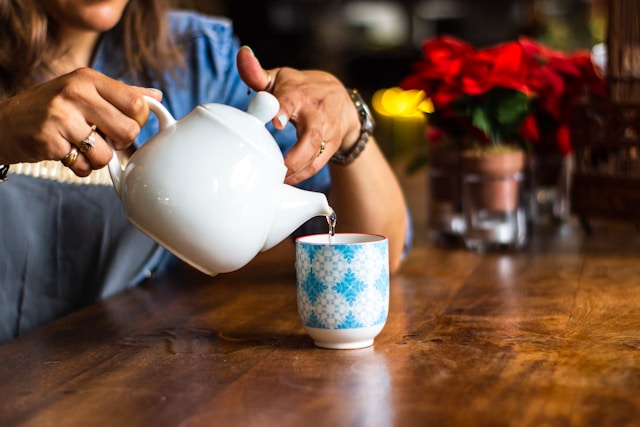Most Healthy Coffee Habits

Most Healthy Coffee Habits
Coffee isn’t just a drink; it’s a beloved ritual that many of us cherish. From the comforting aroma that greets us in the morning to the stimulating boost it provides throughout the day, coffee holds a special place in our hearts. But like all good things, coffee is best enjoyed in moderation and with a few healthy habits in mind. Let’s dive into some of the best practices to ensure your coffee routine is as beneficial as it is enjoyable.
Understanding Coffee’s Benefits
Coffee is more than just a caffeine fix. It’s packed with antioxidants that can help fight inflammation and protect against certain diseases. The magic of coffee lies in its ability to boost mental alertness and concentration, making those morning and afternoon slumps a bit more manageable. Studies have even suggested that regular coffee consumption may lower the risk of conditions like Parkinson’s disease and type 2 diabetes.

Choosing the Right Coffee Beans
The journey to a healthy cup of coffee begins with selecting the right beans. Organic beans are often a better choice as they are free from pesticides and other harmful chemicals. Freshness is key, so look for beans that have been roasted recently. When it comes to bean varieties, Arabica beans are typically preferred over Robusta for their smoother, less bitter taste and higher quality.
Grinding Your Own Coffee
Once you’ve chosen your beans, consider grinding them yourself. Freshly ground coffee retains more of its natural flavors and aromas. Depending on your brewing method, you’ll need a different grind size. Burr grinders are a popular choice as they provide a consistent grind, whether you’re making espresso or a French press.
Water Quality and Temperature
The water you use can make or break your coffee. Ideally, use filtered water to avoid any impurities that could affect the taste. The temperature of the water is also crucial – it should be between 195°F and 205°F. Too hot, and you risk burning the coffee; too cold, and you won’t extract all the flavors.

Brewing Methods
There’s no one-size-fits-all when it comes to brewing coffee. Each method offers a unique flavor profile:
- Drip Coffee: Convenient and consistent, perfect for busy mornings.
- French Press: Offers a rich and full-bodied flavor.
- Espresso: A concentrated shot of coffee, ideal for a quick boost.
- Cold Brew: Smooth and less acidic, great for hot days.
- Pour-over: Provides a clean and nuanced cup.
Healthy Additives and Substitutes
While cream and sugar are common additions, they can quickly turn a healthy coffee into a calorie bomb. Consider using natural sweeteners like honey or stevia, and opt for plant-based milks such as almond or oat milk. Spices like cinnamon or nutmeg can add a delightful twist without the extra calories.
Moderation and Timing
As with anything, moderation is key. Most experts recommend limiting coffee intake to about three to four cups a day. The timing of your coffee consumption also matters. Drinking coffee too late in the day can interfere with your sleep, so try to avoid it after 2 PM.
Mindful Coffee Drinking
In our fast-paced world, we often forget to slow down and savor the moment. Taking time to truly enjoy your coffee can enhance its benefits. Practice mindfulness by focusing on the aroma, flavor, and warmth of your cup. This simple act can turn a routine habit into a cherished ritual.

Storing Coffee Properly
To maintain the freshness of your coffee, store it in an airtight container away from light, heat, and moisture. Whole beans stay fresh longer than ground coffee, so only grind what you need. Avoid keeping coffee in the fridge or freezer as this can introduce moisture and spoil the flavor.
Decaf Options
For those who love the taste of coffee but are sensitive to caffeine, decaf is a great alternative. Decaffeinated coffee still offers many of the same health benefits as regular coffee, minus the jitters. It’s especially useful for enjoying a cup in the evening without disrupting your sleep.
Coffee and Hydration
Coffee is a diuretic, which means it can lead to increased urination and potentially dehydration if you’re not careful. Balance your coffee intake with plenty of water throughout the day. Look out for signs of dehydration like dry mouth or dark urine, and adjust your water intake accordingly.

Pairing Coffee with Food
Pairing coffee with the right foods can enhance your overall experience. A healthy breakfast pairing might include a whole-grain muffin or avocado toast. For snacks, consider nuts, dark chocolate, or fruit. These pairings not only complement the flavors of your coffee but also provide additional nutritional benefits.
The Environmental Impact
Choosing coffee that’s sustainably sourced can make a significant difference. Look for certifications like Fair Trade, Rainforest Alliance, or organic labels. Supporting these products helps ensure fair wages and environmentally friendly practices. Small changes in your buying habits can contribute to a more sustainable coffee industry.
Conclusion
Coffee, when enjoyed mindfully and in moderation, can be a delightful and beneficial part of your daily routine. From selecting the right beans to pairing your brew with healthy foods, there are plenty of ways to enhance your coffee experience. So, sip slowly, savor the moment, and enjoy the journey to healthier coffee habits.
(Maybe you are also interested: Best Coffee Brewing Techniques for Beginners)
FAQs
How many cups of coffee are too many? While individual tolerance varies, most experts recommend limiting coffee intake to about three to four cups per day to avoid negative health effects.
Is it better to drink coffee with or without food? Drinking coffee with food can help mitigate any potential stomach discomfort and provides a more balanced energy boost.
What are the benefits of drinking decaf? Decaf coffee offers many of the same health benefits as regular coffee, such as antioxidants, without the stimulating effects of caffeine.
Can coffee help with weight loss? Coffee can temporarily boost metabolism and increase fat burning, but it’s not a magic bullet for weight loss. It should be combined with a healthy diet and regular exercise.
How does coffee impact sleep? Caffeine can interfere with sleep if consumed too late in the day. To avoid sleep disturbances, try to limit coffee intake to the morning and early afternoon.









